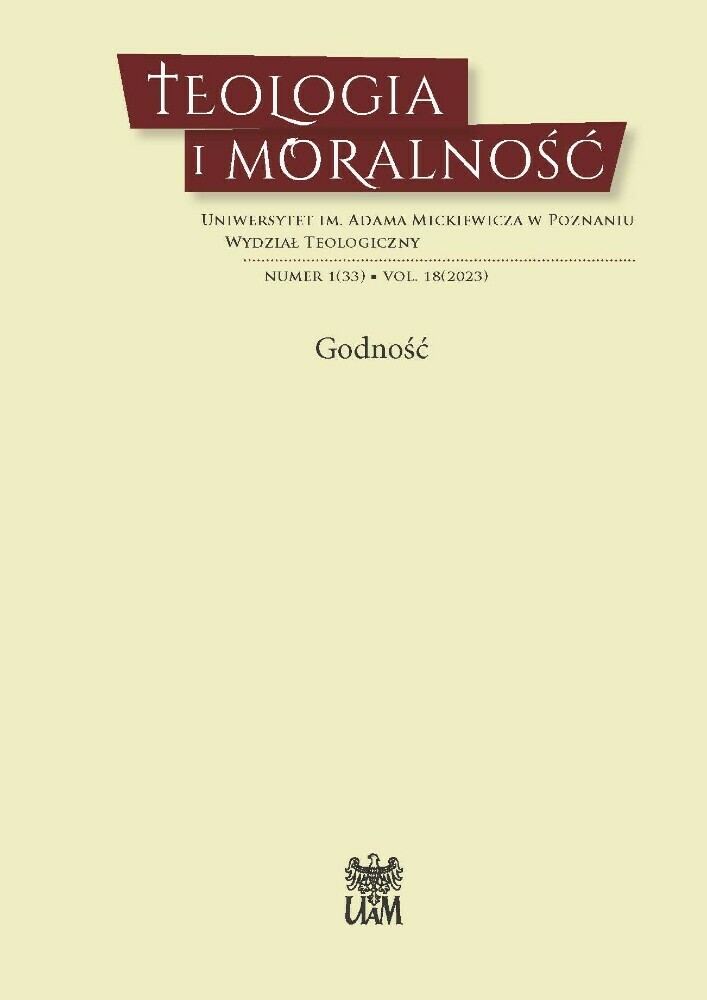Abstrakt
Badania nad częstotliwością zachowań związanych ze zdrowiem podejmowanych przez osoby po chorobie COVID-19 oraz jej związków z zasobami osobistymi, cechami osobowości, postawą moralną oraz pozytywną orientacją na innych ludzi mają za zadanie rzucić nowe światło na sytuację ozdrowieńców po przebyciu choroby. Celem niniejszej pracy było sprawdzenie oraz określenie związków, które zachodzą pomiędzy moralnym wymiarem jasnej triady, prężnością psychiczną a zachowaniami zdrowotnymi wśród ozdrowieńców COVID-19. W badaniu udział wzięły 204 osoby w przedziale wiekowym od 18 do 75 roku życia, które zadeklarowały fakt przechodzenia choroby COVID-19. Każda badana osoba poproszona została o wypełnienie identycznego zestawu narzędzi badawczych, na który składały się: informacja o badaniu, metryczka oraz trzy narzędzia, które miały na celu określenie poziomu badanych zmiennych. Były to krótka skala prężności (BRS), skala jasnej triady (LTS) oraz inwentarz zachowań zdrowotnych (IZZ). Badania wykazały, że występują istotne statystycznie związki między prężnością psychiczną, jasną triadą a zachowaniami zdrowotnymi wśród ozdrowieńców COVID-19. Prężność psychiczna i jasna triada okazały się predyktorami zachowań zdrowotnych w grupie ozdrowieńców COVID-19, co oznacza, że jednostki traktujące przeciwności jako wyzwania sprzyjające rozwojowi oraz zorientowane pozytywnie na innych ludzi, w obliczu choroby wywołanej koronawirusem SARS-CoV-2 wykazują się wyższym poziomem zachowań zdrowotnych po chorobie.
Bibliografia
Connor, Kathryn M. 2006. “Assessment of Resilience in the Aftermath of Trauma.” Journal of Clinical Psychiatry, 67, 46-49.
Falewicz, Adam. 2016. “Prężność osobowości i jej rola w procesach radzenia sobie ze stresem.” Studia Koszalińsko-Kołobrzeskie, 23, 263-275. DOI: https://doi.org/10.18276/skk.2016.23-17
Gerymski, Rafał and Dariusz Krok. 2019. “Psychometric properties and validation of the Polish adaptation of the Light Triad Scale.” Current Issues in Personality Psychology, 7(4), 341-354. DOI: https://doi.org/10.5114/cipp.2019.92960
Juczyński, Zygfryd. 2001. Narzędzia pomiaru w promocji i psychologii zdrowia. Warszawa: Pracownia Testów Psychologicznych Polskiego Towarzystwa Psychologicznego.
Kaufman, Scott et al. 2019. “The Light vs. Dark Triad of personality: Contrasting two very different profi les of human nature.ˮ Frontiers in Psychology, 10, 467. Access: 16.01.2023. DOI: https://doi.org/10.3389/fpsyg.2019.00467
Konaszewski, Karol, Małgorzata Niesiobędzka, and Janusz Surzykiewicz. 2020. “Validation of the Polish version of the Brief Resilience Scale.ˮ PloS ONE, 15(8), e0237038. Access: 16.01.2023. DOI: https://doi.org/10.1371/journal.pone.0237038
Ogińska-Bulik, Nina. 2004. Psychologia nadmiernego jedzenia. Łódź: Wydawnictwo Uniwersytetu Łódzkiego.
Ogińska-Bulik, Nina. 2011. “The role of resiliency in adjustment to cancer in women.ˮ Psychoonkologia, 15(1), 1-10.
Ogińska-Bulik, Nina and Zygfryd Juczyński. 2008a. Osobowość: stres a zdrowie. Warszawa: Difin.
Ogińska-Bulik, Nina and Zygfryd Juczyński. 2008b. “Skala Pomiaru Prężności – SPP-25.ˮ Nowiny Psychologiczne, 3, 39-56.
Petersen, Irene and Andrew Phillips. 2020. “Three Quarters of People with SARS-CoV-2 Infection are Asymptomatic: Analysis of English Household Survey Data.ˮ Clinical Epidemiology, 12, 1039-1043. DOI: https://doi.org/10.2147/CLEP.S276825
Tugade, Michele, Fredrickson, Barbara and Lisa Feldman Barrett. 2004. “Psychological resilience and positive emotional granularity: Examining the benefi ts of positive emotions on coping and health.ˮ Journal of Personality, 72(6), 1161-1190. DOI: https://doi.org/10.1111/j.1467-6494.2004.00294.x
Waugh, Christian and Barbara Fredrickson. 2006. “Nice to know you: Positive emotions, self-other overlap, and complex understanding in the formation of a new relationship.ˮ The Journal of Positive Psychology, 1(2), 93-106. DOI: https://doi.org/10.1080/17439760500510569
Weiss, Gregory and Daniel Larsen. 1990. “Health value, health locus of control, and the prediction of health protective behaviors.ˮ Social Behavior and Personality: an international journal, 18(1), 121-135. DOI: https://doi.org/10.2224/sbp.1990.18.1.121
Ziarko, Michał. 2006. Zachowania zdrowotne młodych dorosłych – uwarunkowania psychologiczne. Poznań: Wydawnictwo Naukowe Bogucki.
Licencja
Prawa autorskie (c) 2023 Szymon Spałek

Utwór dostępny jest na licencji Creative Commons Uznanie autorstwa – Bez utworów zależnych 4.0 Międzynarodowe.

